Cargando...
Recursos educativos
-
Nivel educativo
-
Competencias
-
Tipología
-
Idioma
-
Tipo de medio
-
Tipo de actividad
-
Destinatarios
-
Tipo de audiencia
-
Creador
Lo más buscado
-
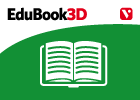
Conquest, organisation and exploitation of the colonies
EduBook Organización
- 2748 visitas
2.1. Exploration and conquest In the mid-19th century, much of Africa, Asia and the oceans were unknown to Europeans. Because of their colonial ambitions, the major powers organised scientific voyages…
-

True/false. Roman religion and Christianity (1)
EduBook Organización
- 2745 visitas
Decide if the following statements about Roman religion are true or false: The Romans only worshipped one god. ➝ The gods they worshipped most were Mercury, Venus and Mars. ➝ The Romans built…
-

The Origins of the American Police
EduBook Organización
- 2615 visitas
The first state to have its own police force was Texas. This police force was called the Texas Rangers. They were organized in 1835. For many years the Texas Rangers defended the Texas frontier against…
-
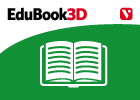
Summaries - The age of imperialism
EduBook Organización
- 2687 visitas
1. The driving factors behind imperialism The Second Industrial Revolution transformed the European powers, who used their new superiority to conquer new territories in Africa and Asia. The causes of…
-
Final self-evaluation 6 - Feudal Europe
EduBook Organización
- 2640 visitas
Which aspect of the subject of feudal Europe do the following sentences refer to?: The castles were fortified residences of feudal lords and were often located in the centre of their territories. In…
-
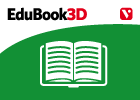
Introduction - Human reproduction
EduBook Organización
- 2633 visitas
Reproduction is an essential function in human beings. It enables humans to produce individuals similar to themselves. In this unit you will learn how the reproduction that started your life occurred.…
-
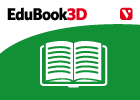
New architecture
EduBook Organización
- 2622 visitas
1.1. Functionalism and organicism During the first half of the 20th century, architectural styles were based on concepts of simplicity and functionality, rejecting the extravagant designs of Modernism…
-
True/false. Mozarabs and Mudéjars
EduBook Organización
- 2621 visitas
Are the following statements true or false?: The Mozarabs were Christian Visigoths who had converted to Islam. The Andalusian governors allowed Mozarabs to practise their Christian religion without…
-
Initial evaluation T7 04 - Art in the 19th century
EduBook Organización
- 2600 visitas
Indicate whether the following statements are true (T) or false (F): Rococo is an artistic and decorative style which is characterised by its simple and austere forms. The values of Romanticism were the…
-

Analyse. Learn how a mountain range is formed
EduBook Organización
- 2565 visitas
As you already know, the Himalayas were formed when the Indian Plate collided with the Eurasian Plate. The oceanic lithosphere subducted under Eurasia and the oceanic sediments, which were very light,…
Te estamos redirigiendo a la ficha del libro...












